Whether it’s in the kitchen or behind the bar, reducing a venue’s environmental footprint is front of mind for many hospitality workers. While it’s not easy to know where to start, there’s no better place to look than to the people who have built their businesses on doing their bit for the environment.
Hospitality speaks to Dennis Yong from Parcs, Jo Barrett from Little Pickett and Luke Whearty from Byrdi about taking a multipronged approach to sustainability from utilising food scraps and working with local suppliers to getting innovative when it comes to repurposing ingredients.
Dennis Yong, Parcs

It’s not surprising Parcs is a venue that utilises leftover food waste to create dishes — have a read of the name backwards. Chef Dennis Yong has long been an advocate for low-waste cooking, which first stemmed from an awareness of the environment and later linked up with an interest in preserving.
Parcs is a fermentation-centric restaurant in Melbourne that bases its menu on produce that is considered ‘unwanted’. “We are focusing on our main goal which is not just cooking food and putting it on a plate, but using scraps and surplus,” says Yong.
One of Parcs’ classic dishes is the umami e pepe, which incorporates miso sauce made from bread scraps in place of cheese. A newer addition to the menu is a kangaroo dish served with a sauce made from by products such as house-made plum wine and vinegar from leftover oxidised wine.
A waste-minimising mindset applies to the drinks menu, too, with the kitchen crafting condiments from used or leftover products. “With an orange, the juice is used and the peel is usually chucked away,” explains Yong. “We dry the peels, blend them with chilli salt and then salt rim glasses.” Additionally, wines that can’t be served due to faults are stored and reused to create house vermouth.
But Yong admits the pursuit of sustainability can be difficult. “I am heading towards low waste, but it’s a long process and we’re still trying to figure out how can we do things better,” he says. One of the many challenges is cost. “It’s really hard to manage your costs as sometimes organic stuff is more expensive,” he says.
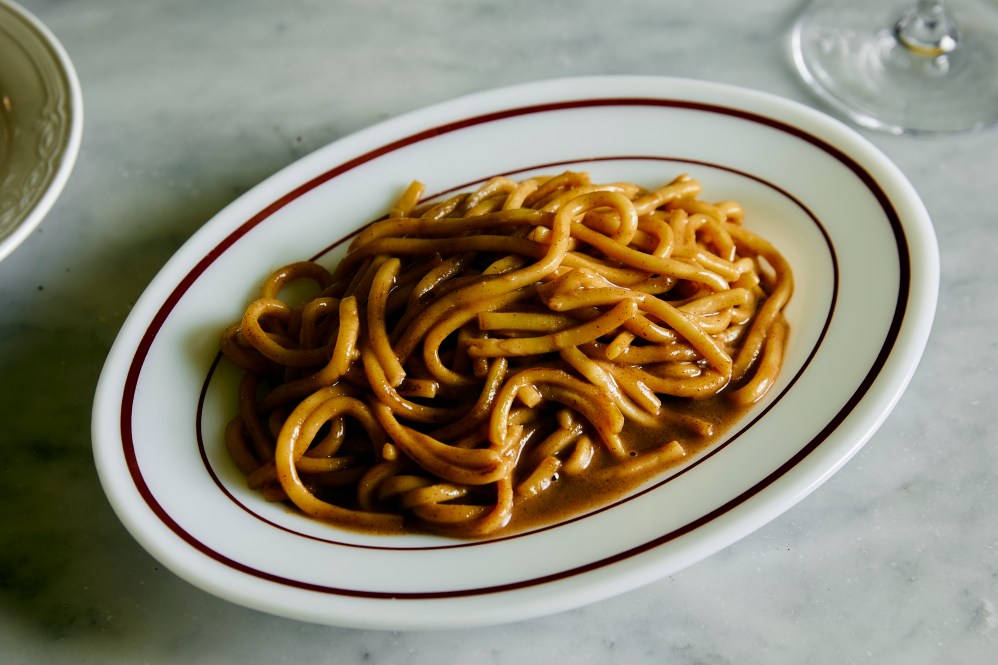
Ultimately, an open mind is vital to making a change. “Whatever is given to you, you just have to use it rather than thinking, ‘I only want to make this, so I will just use these’,” he says. “Food waste is not a simple problem — it’s really complex.”
A realistic approach is particularly important when it comes to the end product and not being so focused on the pursuit of perfection. “Restaurants are always talking about consistency and dishes being the same,” says Yong. “But do they really? At the end of the day, if the food tastes good, what difference does it make?”
Yong has also spearheaded a company called Furrimen which aims to educate and share knowledge with the industry through hosting workshops for industry professionals. “Habits start young, so if they have a mindset of not throwing out food and trying to minimise waste, it’s going to change the whole world,” he says.
“I try to share whatever I know to solve food waste together; I learned these techniques on my own through trial and error. I can’t do this alone — we have to help each other.”
Jo Barrett, Little Pickett
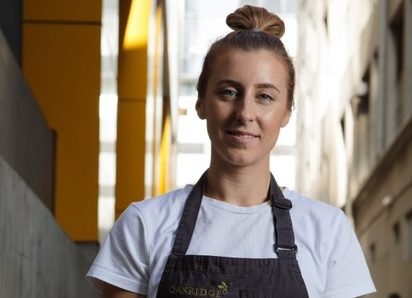
Jo Barrett’s seasonal and local approach to cooking is synonymous with sustainability, and is front and centre at her new gig at Little Pickett in Lorne, Victoria. It’s a mindset that has remained ingrained from the start when the chef first began her career in hospitality. “It was a bit of a shock stepping into a commercial kitchen and prepping large amounts of food,” she says. “It didn’t sit too well with me looking at waste going into the bin…I knew something wasn’t right.”
Barrett would go on to hone her approach to cooking thanks to her time working with Michael James (ex-Tivoli Road Bakery) and sustainability advocate Joost Bakker. “I started to realise it was possible to work in a restaurant that was aware of composting and using farm-direct produce,” says the chef. “That was the point where I wanted it to be the focus for me.”
Barrett is now running Little Pickett where seasonality, locality and community take pride of place in the kitchen. The restaurant sources ingredients from local producers as well as from its own estate garden. “It’s about supporting a local community and the growers in the region,” she says. “It’s also about closing loops so food isn’t travelling excessive amounts and doesn’t need to be packaged [for that purpose].”
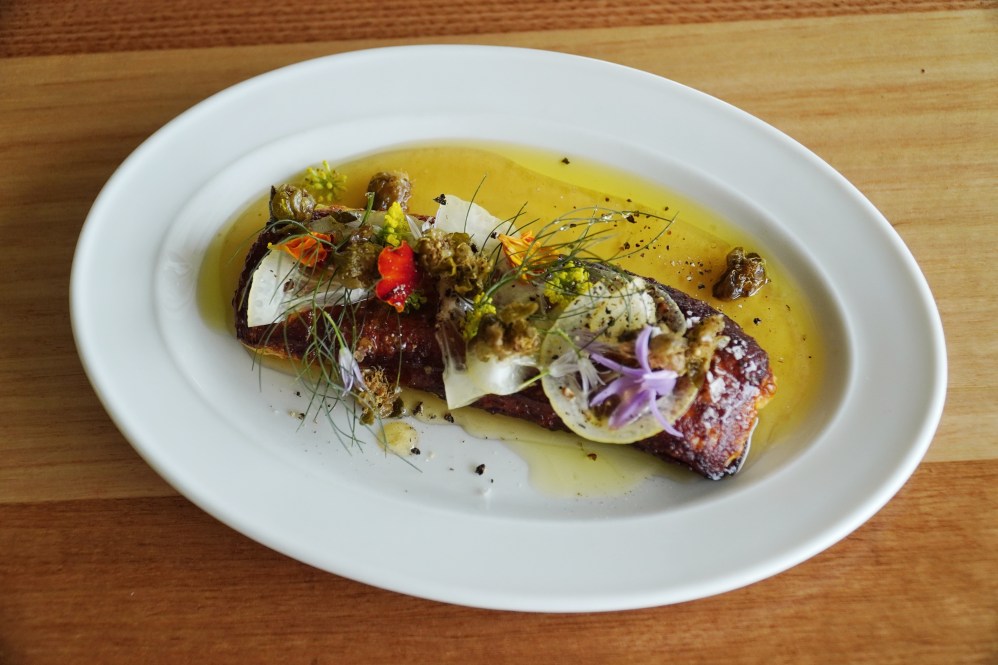
The chef works closely with Kinsfolk Farm in Moriac, which is a small-scale organic operation. “They send me a list on Sunday of what they’re picking, and we will then make a menu, so it’s about utilising what’s around,” says Barrett.
Little Pickett preserves produce throughout the year via pickling and fermenting to ensure ingredient longevity and engages in composting and recycling. The venue is also equipped with an on-site eWater system, which reduces the need for harsh cleaning chemicals.
For Barrett, going back to basics plays a vital role in sustainability. “As an industry, we should be looking at cooking skills and putting a focus on that,” says the chef. “At the most basic level, [it’s about] making things from scratch and buying ingredients that aren’t processed and then using your skills to create dishes. It’s cost-effective and better for the planet.”
Luke Whearty, Byrdi
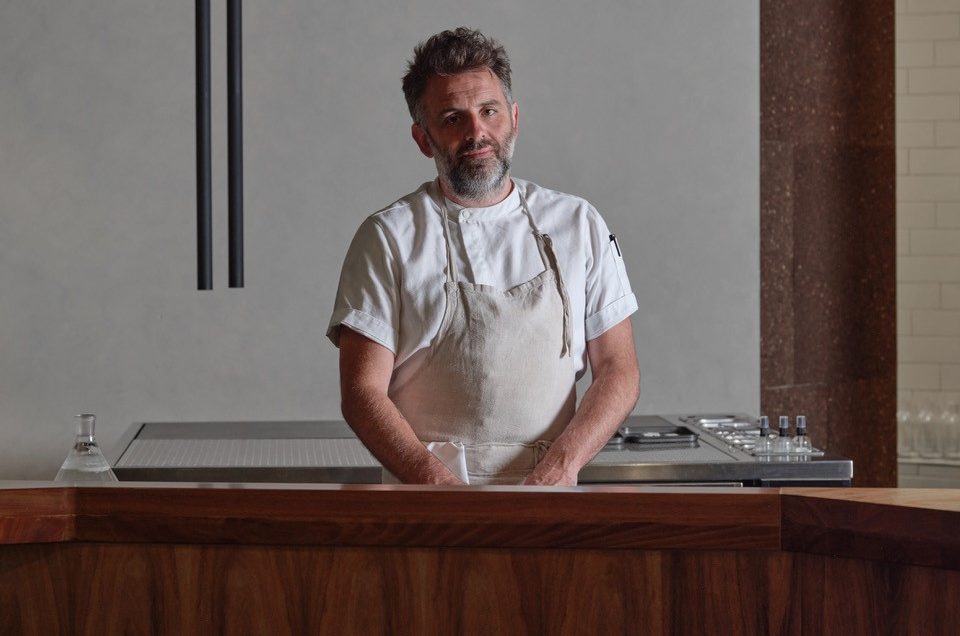
Luke Whearty is known for creating venues that represent their surroundings. The bartender opened Byrdi in Melbourne in 2019 with Aki Nishikura after returning from Singapore, with the venue fast racking up the accolades. “The biggest thing with Byrdi is we wanted to get back to focusing on the things we missed from being overseas,” says Whearty. “We want to offer a sense of time and place.”
A localised focus along with the idea of saving money inspired Whearty to start foraging. But the cost-cutting exercise ultimately ended up leading him down the path of sustainability. “While I’d love to say it started for all these wholesome reasons, it began because we were trying to minimise costs,” he says. “Then we started having a holistic view and seeing the effect it has.”
Whearty recalls the mindset of sustainability as being “contagious”, and it soon moved to other parts of the business. He thought about the produce he was using and its by products, and began to work out how he could give ingredients a second life. The bartender also became more aware of waste, choosing to order in bulk to avoid excessive packaging and minimising travel.
“I don’t realise how many things we’re cutting and how much we’re reducing our waste until someone asks me,” he says. “It’s quite a lot and it’s become kind of our mantra now.” It extends to the drinks, too. Whearty recently created the Cobba cocktail, which was based around toasted and distilled corn husks that were intended to be discarded. “There’s a lot of waste coming out of the kitchen that might make its way into a drink,” he says. “It’s really cool to talk about the food and drinks together and match them.”
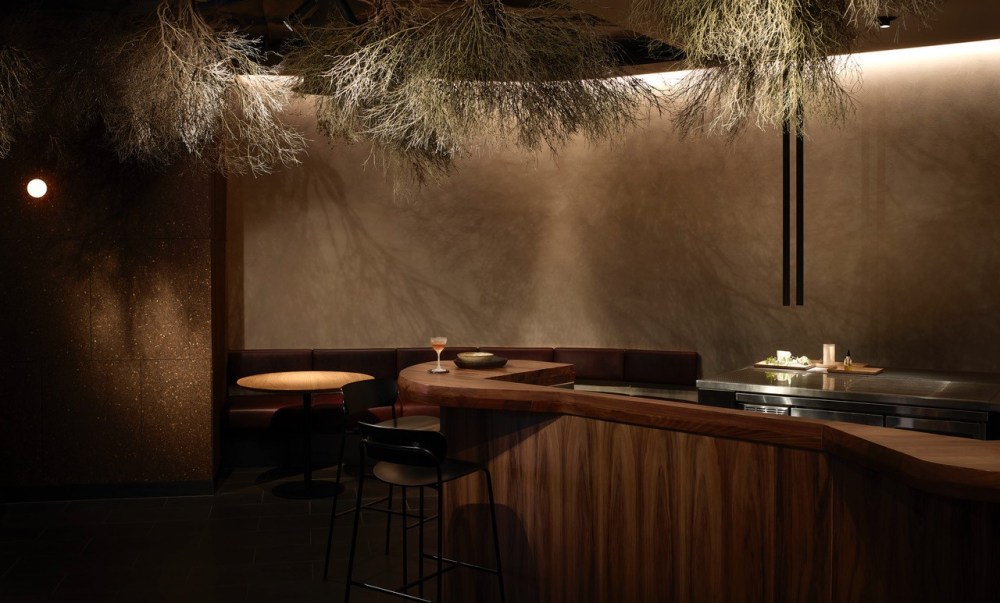
Whearty admits the term seasonality is not one commonly used among bartenders, but is something he believes can change. “I think bartenders can be an extension of the kitchen. It’s slowly happening, but I think we could see more of that,” he says. “Rather than having an orange twist on your Negroni all-year round, think about other garnish options.”
Whearty suggests approaching ingredients according to method, carefully considering each step and what’s involved. “If one of those steps is producing something that is going in the bin, think, ‘Why is it going in the bin?’ Even if you might not have another use for it, the kitchen might.”
Ultimately, the most important steps to becoming more environmentally conscious include going local and being flexible with what’s in season. The practices have resulted in myriad perks for Byrdi, which is a case study of how operators can make sustainability an integral focus of a business model.
“It’s very easy to fall into the trap of, ‘I won’t make a difference by just eliminating this from my small bar or restaurant’,” says Whearty. “But it does when the idea spreads to other avenues of your business and then to staff, suppliers, producers and the greater community — it does have a chain reaction.”
Sustainability will continue to be an important topic across hospitality. While the path may seem like a long one, small steps and changes have a significant impact in the long run.
Sponsored Content

Celebrating coffee moments with Buondi
Sponsored by Nestlé Professional

Meet Force, the new player in commercial cookware
Sponsored by Tomkin
Trending Now
Resources
Lorem ipsum dolor sit amet, consectetur adipiscing elit. Fusce ac ornare lectus. Sed bibendum lobortis...
Lorem ipsum dolor sit amet, consectetur adipiscing elit. Fusce ac ornare lectus. Sed bibendum lobortis...
Sign up for our newsletter
